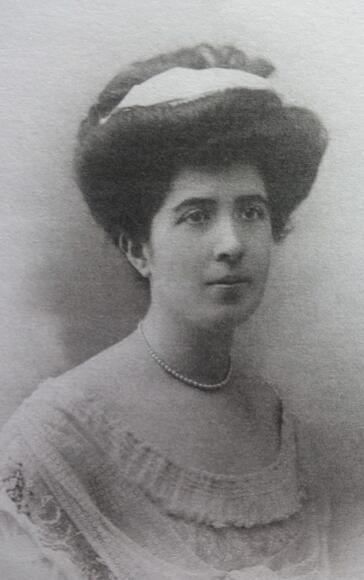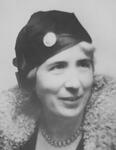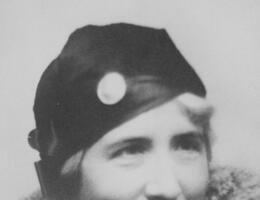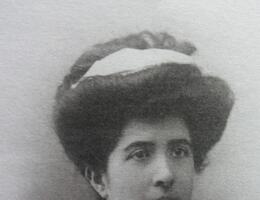
Charlotte SOHY
1887 - 1955
Composer
Charlotte Durey, épouse Labey, dite “Ch. Sohy” ou “Charles Sohy”.
Born into an upper-middle-class family in Paris, Charlotte Durey was taught music by Georges Marty (piano and harmony) and then entered the Schola Cantorum. There she studied under Alexandre Guilmant and Vincent d’Indy and met the composer Marcel Labey (1875-1968) who became her husband in 1909. This musical couple was exceptional in the history of French music: husband and wife collaborated and supported each other. Charlotte wrote, for example, the libretto of Bérengère, a drame lyrique composed by Marcel for the Concours Musical de la Ville de Paris (1920). Marcel, a conductor and secretary of the Société Nationale de Musique, programmed his wife’s works during the 1920s and 1930s. Despite this support, Charlotte Durey-Sohy concealed her gender when signing her scores: she used the pseudonym ‘Ch. Sohy’ or ‘Charles Sohy’, the name of her maternal grandfather. Her catalogue of works comprises thirty-five opus numbers, including the drame lyrique L’Esclave couronnée (composed between 1917 and 1921 and premiered in Mulhouse in 1947), a Thème varié for violin and piano or orchestra (1921), a Piano Trio (1931), two string quartets (1933 and 1947), twenty mélodies, some choral works, a Symphony in C sharp minor(1917, never played during her lifetime), the cantata Les Quatre Rencontres de Bouddha (1913), the symphonic poem Danse mystique (1922) and several masses. The most striking aspect of her style is a great lyrical and dramatic power, coupled with flawless word-setting thanks to her literary and declamatory talents.
Focus
Focus






